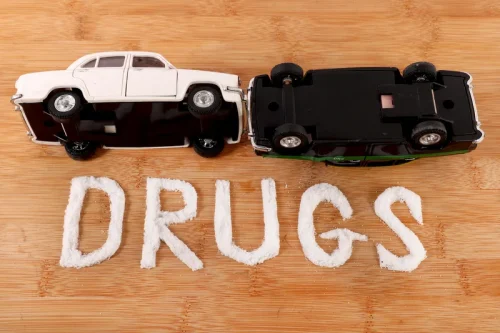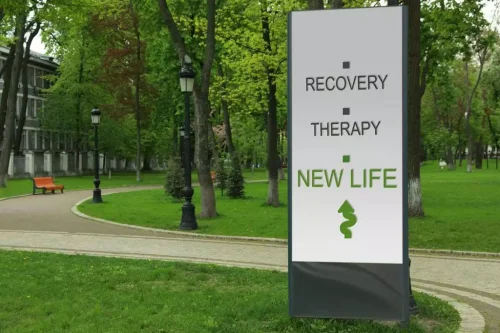
These treatments include inpatient rehab, outpatient treatment and detoxification, the latter of which is considered to be the starting point for any treatment program. Alcohol use disorder frequently occurs alongside other mental health conditions. Pre-existing mental health conditions can sometimes lead people to turn to alcohol to cope with their symptoms. In other cases, long-term alcohol exposure can increase a person’s risk of developing a psychiatric illness. People who are heavy alcohol users and quit cold turkey (stop drinking abruptly) can develop a severe life-threatening form of alcohol withdrawal syndrome called delirium tremens or DTs.
- While occasional social drinking may not result in significant changes when you decide to quit, you may experience more significant effects if you have been drinking heavily for an extended time.
- Going through the stages of alcohol recovery can be stressful, but it’s less difficult with the right support system in place.
- This is because alcohol can cause changes in brain chemistry, which can lead to cognitive problems.
Adapting to Ebb and Flow: The Stages of Change Model

By adopting harm reduction strategies, individuals gain the tools to make healthier choices, manage risks, and gradually work towards minimizing the impact of substance use on their lives. Recognizing addiction’s impact on various life aspects, the best programs integrate diverse rehabilitative services. Clinical advances in addiction treatment align with the Stages of Change Model, offering a valuable tool for therapists, counselors, and health professionals facilitating clients’ recovery goals. Experts acknowledge addiction’s multifaceted nature, encompassing physiological, psychological, and social components. A strong support system, adherence to an after-care plan, a recovery-friendly environment, and seeking help during stress reduce the risk of relapse. Science indicates that triggers such as people, places, things, moods, and drug exposure play significant roles.
Stages of Alcohol Recovery: The Ultimate Guide

As individuals continue to drink alcohol over time, progressive changes may occur in the structure and function of their brains. These changes can compromise brain function and drive the transition from controlled, occasional use to chronic misuse, which can be difficult to control. The changes can endure long after a person stops consuming alcohol, and can contribute stages of alcoholic recovery to relapse in drinking. When you are changing your drinking behaviors, it is common to have cravings or urges to drink alcohol. This includes both psychological (emotional) triggers that tempt you to drink as well as physical sensations that make you want to drink. Drinking excessive amounts of alcohol has a severe negative impact on a person’s health.

Seeking Treatment at the Granite Recovery Center
Generally, you may need treatment for alcohol misuse when you can no longer control the amount you drink or how long you drink. You may also know that you need help with alcohol misuse when you begin experiencing consequences directly related to your alcohol misuse—but you still can’t stop or cut back on the amount that you’re drinking. To learn more about when you may need help for alcohol misuse, visit our informational page on helping someone with an alcohol use disorder or take our alcohol misuse self-assessment. Quitting drinking can have many important benefits for your physical and mental health, but there are many other types of benefits you may experience as well.
Stages of Alcoholism
There are companies large and small that have recovery-friendly hiring practices. In addition, there are nonprofit organizations such as American in Recovery and the National HIRE Network that specifically help those with addiction or criminal history to find work. Usually for a substantial fee, career transition services help executive https://ecosoberhouse.com/ and higher-up employees define career goals and help with job searches. Many treatment programs have partnerships with area businesses to hire those in recovery. And one measure of a comprehensive substance abuse treatment program is the help it offers to enrollees to identify their interests and find and build a meaningful career path.
- That said, there are four general stages of recovery, as compiled by addiction expert Steven M. Melemis, MD.
- Let’s examine these 12-step programs more closely, including the individual steps and the traditions that help guide them.
- The single most popular path is the use of peer support groups in the community.

Treatment and information aimed at adolescents can help them learn techniques for managing both positive and negative emotional states. Relapse carries an increased risk of overdose if a person uses as much of the drug as they did before quitting. Researchers have studied the experiences of many people who have recovered from substance use and identified key features of the recovery process. One widely used model can be summed up in the acronym CHIME, identifying the key ingredients of recovery.
Recovery Coaching
The Jellinek Curve offers insights into the phases of addiction and the path to recovery. Your body has acclimated to quitting drinking over the past couple of years. That said, there are four general stages of recovery, as compiled by addiction expert Steven M. Melemis, MD. These stages can help prevent relapse and support people to live healthier, fuller lives. Effective budgeting, understanding insurance details, and exploring additional financial resources are essential for minimizing the financial burden of inpatient rehab.

